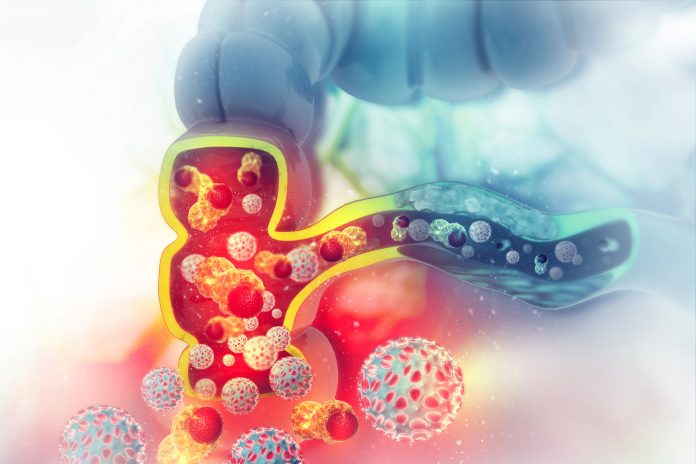
A combination of two drugs can attack tumors in a non-conventional manner, according to researchers from the Netherlands Cancer Institute. Instead of inhibiting tumor cell division, this approach involves using one drug to hyperactivate oncogenic signaling to the point where cells become stressed. The second drug then attacks the stressed cells. The team suggests this may be a better approach for hard-to-treat cancers such as microsatellite stable colon cancer.
“Induced hyperactivation by Lixte’s PP2A inhibitor, LB-100, leads to hyperactivation of multiple oncogenic signaling pathways and acquired vulnerability to WEE1 inhibition,” senior author Rene Bernards told Inside Precision Medicine.
The study appears in Cancer Discovery. The first author is Matheus Henrique Dias, a senior postdoctoral fellow at the Netherlands Cancer Institute.
Their initial studies were in cell lines and animals, but they are planning to do studies in patients soon.
“Microsatellite stable (MSS), which is the vast majority of colon cancer, has very few treatment options. We intend to test this combination of Lixte’s LB-100 and WEE1 inhibition later this year at our affiliated Antoni van Leeuwenhoek hospital in patients with MSS colon cancer that have progressed on conventional therapies,” Bernards told Inside Precision Medicine.
The road to this discovery has been long.The team initially discovered that a gene known as fibroblast growth factor 2 [FGF2] inhibited multiplication of tumor cells instead of stimulating it. “This was a surprise since it was the opposite of what should happen,” said Dias. At the time, a study on the role of FGF2 was published in the journal Molecular Oncology.
In this latest paper, the researchers show that cancer cells do not multiply less because they are inhibited directly by a drug, as in the case of conventional chemotherapy. On the contrary, one of the drugs this team used triggers hyperactivation of tumor cell signaling, stressing the cells and making them sensitive to specific drugs.
“As a rough analogy, imagine you’re in a very fast car and instead of braking to stop it you step hard on the accelerator until the engine overheats. And you turn off the cooling system just when the engine gets really hot,” Dias said.
Another co-author of the study, Marcelo Santos da Silva, developed an assay to quantify stress in tumor cells.
“When tumor cells are hyperactivated, they replicate DNA even faster than usual, but their DNA is damaged because they aren’t equipped to handle such rapid replication. This is known as replicative stress,” he said.
Observing that hyperactivation of FGF2 stressed the cells sufficiently to inhibit their multiplication, Dias decided to look for a molecule that could induce this process. The most promising candidate was LB-100, which was currently being tested in clinical trials to confirm it made lung tumors sensitive to chemotherapy drugs.
To attack cells stressed by the action of LB-100, the researchers chose inhibitors of the protein WEE1, which is responsible precisely for repairing tumor DNA damage. When this mechanism is not working, tumor cells divide before completing DNA replication and die as a result.
The trials involved colorectal tumor cells taken from human biopsies and implanted in mice. Treatment with the two drugs inhibited tumor growth in the animals.
In light of their success in colorectal cancer models, the researchers went on to test the combination on pancreatic adenocarcinoma and cholangiocarcinoma (bile duct) cell lines. These are rarer and more aggressive types of cancer with few treatment options. The team says results were equally promising.
“This is a growing research field, with large corporations investing in signaling activators and startups being founded to develop this kind of drug. In the years ahead, some will be on the market as options for cancer treatment. We hope one of them is ours,” Dias said.









